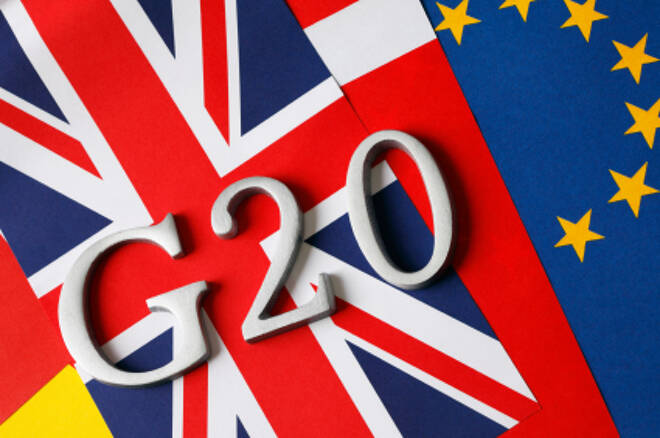Advertisement
Advertisement
Bank of Japan & Fed Reserve Policies Likely To Be Hot Topic At G20 Meeting
By:
After a lackluster US jobs report on Friday came the start of the G20 meeting which was the focus over the weekend. World leaders meet in China this
After a lackluster US jobs report on Friday came the start of the G20 meeting which was the focus over the weekend. World leaders meet in China this weekend to renew their promises to use tax and spending policies to invigorate the sluggish world economy, but the chances of a meaningful new pro-growth push look slim. Many of the major central bankers have been pushing government to move away from monetary stimulus from the banks. As concerns grow about over-reliance on central banks to deal with the hangover of the financial crisis, there are some tentative signs of a more relaxed approach to public spending.
The European Union has taken a softer stance with some member states over its budget rules. And Britain, which until recently wanted to turn its big deficit into a surplus by 2020, is considering fiscal stimulus to offset the shock Brexit vote.
The United States, frustrated that the slow global economy is holding it back, hopes its calls for governments to do more to spur growth will gain new urgency when G20 presidents and prime ministers meet in Hangzhou in China on Sunday and Monday. Monday is also a holiday in the US and Canada with markets shuttered.
Japan, which has been trying to revive its economy for about 20 years, announced last month a 13.5-trillion-yen spending plan which includes infrastructure payouts to low-income households. But with public finances still weak in many countries, there has been little major action to spur growth.
Nearly 10 years after the financial crisis began, many central bankers sound exasperated that their bold stimulus attempts have not been followed up by governments.
“Monetary policy is not well equipped to address long-term issues like the slowdown in productivity growth,” U.S. Federal Reserve Vice Chair Stanley Fischer said on Sunday, calling on Washington to invest more in infrastructure and education to juice up the slowly recovering U.S. economy.
The Bank of Japan is facing a huge problem with their balance sheet growing to historical levels without much change in the economy. The big question is how will the BoJ emerge from negative interest rates and its huge bond buying program. The Japanese yen remains way over prices even with its huge moves last week the currency is trading at 103.91 against the USD whereas BoJ and government officials are hoping to see the rate closer to the 120 range. The Nikkei 225 remains overpriced. Bloomberg reported that there’s an 8.7 trillion-yen ($84 billion) gap between the value of government bond holdings on the Bank of Japan’s balance sheet and their face value.
While not an immediate problem because the BOJ’s income can cover the losses, the widening gap raises questions about the sustainability of the central bank’s bond purchases, which Governor Haruhiko Kuroda has said could be expanded.
The gap exists because, unlike the Federal Reserve, the BOJ counts its bond holdings at the purchase price, minus amortization costs. This number is diverging more from the face value because the central bank’s purchases and negative rate policy are pushing up prices. The face value is what the BOJ will receive when the bonds mature.
The Federal Reserve is eager to normalize monetary policy and start raising interest rates. Bill Gross says August’s jobs data ensure the Federal Reserve will raise interest rates this month. Pacific Investment Management Co., his former firm, says the central bank will wait. Bond traders are on the fence. The US dollar is trading at 95.62 correcting after a kneejerk reaction to the initial jobs release. US stock markets ended the week without much of a change.
“September is on — I don’t think it’s 100 percent on, but I think it’s close to 100 percent,” Gross, manager of the Janus Global Unconstrained Bond Fund, said in an interview with Bloomberg Radio. “If these types of jobs don’t do it, I’m not quite sure what does.” Pimco, the firm Gross co-founded and left in 2014, disagrees.
His statement preceded the US jobs report on Friday that showed employers added 151,000 positions last month, following a 275,000 gain in July that was larger than previously estimated. The median forecast in a Bloomberg survey called for 180,000 additions. The jobless rate and labor participation rate held steady, while wage gains moderated and hours worked were the lowest since 2014.
About the Author
Barry Normanauthor
Advertisement
